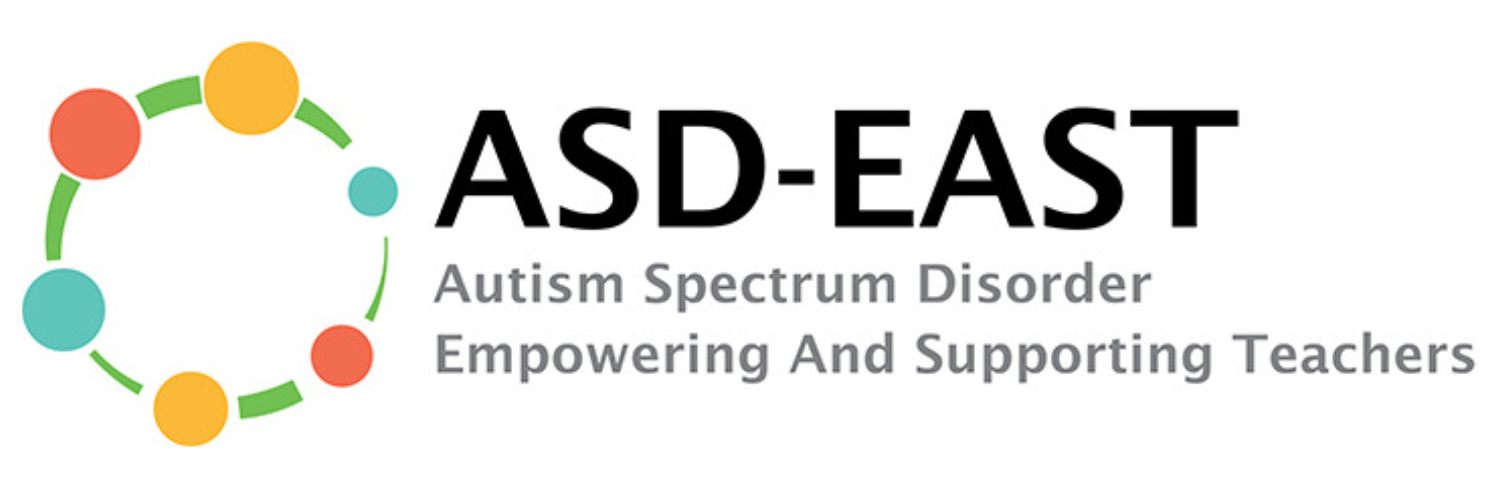
The Autism Spectrum Disorder – Empowering and Supporting Teachers (ASD-EAST) project focused on empowering specialist educators in Central/Eastern/Balkan settings to support effective inclusion of children on the autism spectrum in education. Running from September 2018 to August 2020, the project was funded by the European Commission’s Erasmus + Programme.
Autism Spectrum Disorders (ASD) impact all aspects of the person’s experience as lifelong condition, including how they learn. Such autistic children and young people share common education needs with all others and are entitle to appropriate education. However, they have specific and special needs regarding the characteristic difficulties in autism in communication, social understanding, inflexibility and sensory processing. Education is the key intervention for this group, and meaningful access to effective education is crucial.
Due to the diverse autism spectrum, no single educational intervention is effective for all: educators need a range of skills and strategies. Providing such education is challenging across Europe, particularly in Croatia, Poland and North Macedonia. Project partners, in previous projects, have identified good practice but also significant training/development needs. The ASD-EAST project focused on developing training to support effective teaching to ensure the inclusion of autistic learners within these European countries.
The project brought together universities, schools, autism professionals and NGOs across Europe to:
- Map country-specific and EU-wide good practice and areas needing development regarding educational inclusion of autistic children within diverse European states (focus on Croatia, North Macedonia and Poland);
- Develop a locally appropriate model training programme and materials for specialist educators supporting the educational inclusion of autistic children;
- Use these materials to pilot the training with specialist educators from mainstream/special schools across the targeted areas;
- Evaluate the appropriateness of the materials and impact of the training on teacher’s skills and practice;
- Share the programme and materials with stakeholders and make recommendations to policy-makers in these regions/across Europe.
The partners involved came from various backgrounds – both national and cultural – and have a wide set of skills. The project coordinator, the University of Northampton (UK) worked closely with the other partners: Target Autism (UK), the Faculty of Education and Rehabilitation Science of the University of Zagreb (Croatia), Centar za Autizam (Croatia), the Pedagogical University of Kraków (Poland), Association for improving the Life of People with Autism Spectrum Disorder, Sina Svetulka (North Macedonia) and the Special School Dr Zaltan Sremec (North Macedonia) and Autism-Europe (Belgium).
Autism-Europe took lead on the Dissemination and the Policy Recommendations Work-Packages, and co-led the Impact and Sustainability one, apart from taking responsibility for the forth international multiplier event held in Brussels in 2020.
The partnership was supported by an advisory group including individuals on the autism spectrum, families and professionals, and was designed to ensure that key stakeholders were actively involved in designing the project at all stages to ensure relevance and appropriateness.
About the Erasmus+ Programme
Erasmus+ is the EU’s programme to support education, training, youth and sport in Europe. Its budget of €14.7 billion will provide opportunities for over 4 million Europeans to study, train, gain experience, and volunteer abroad.